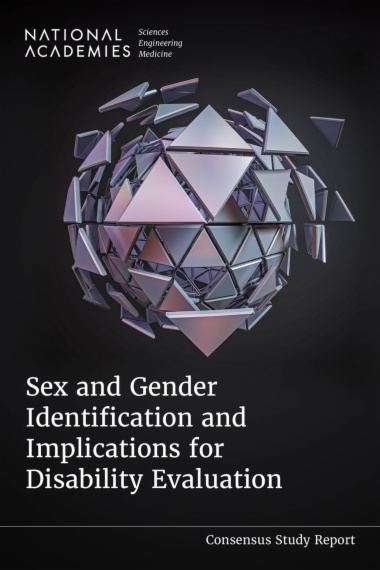

Transgender and gender diverse (TGD) people and people with variations in sex traits (VSTs) can experience serious health challenges and often have a greater burden of disability or greater morbidity from chronic disease compared with the general population.
"Transgender and gender diverse" refers to people whose gender identity differs from what is typically associated with their sex recorded at birth. "Variations in sex traits" refers to genetic, anatomical, and hormonal variations that affect the genitourinary tract and reproduction systems; individuals with VSTs may have a sex and/or gender identity that differs from their sex recorded at birth.
The U.S. Social Security Administration (SSA) asked the National Academies to convene a committee of experts to evaluate how contemporary conceptions of sex and gender in medicine and current clinical guidelines impact disability determinations. The resulting report offers conclusions in key areas including (1) the collection of data on sex and gender identity, (2) disability considerations for SSA' Listings of Impairments (medical criteria that apply to the evaluation of disability) with sex-specific diagnostic criteria, (3) inclusive language in disability Listings of Impairments, and (4) guidance for adjudicators on assessing disability for TGD applicants and applicants with VSTs.